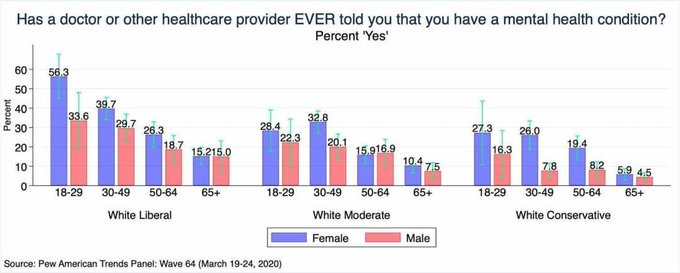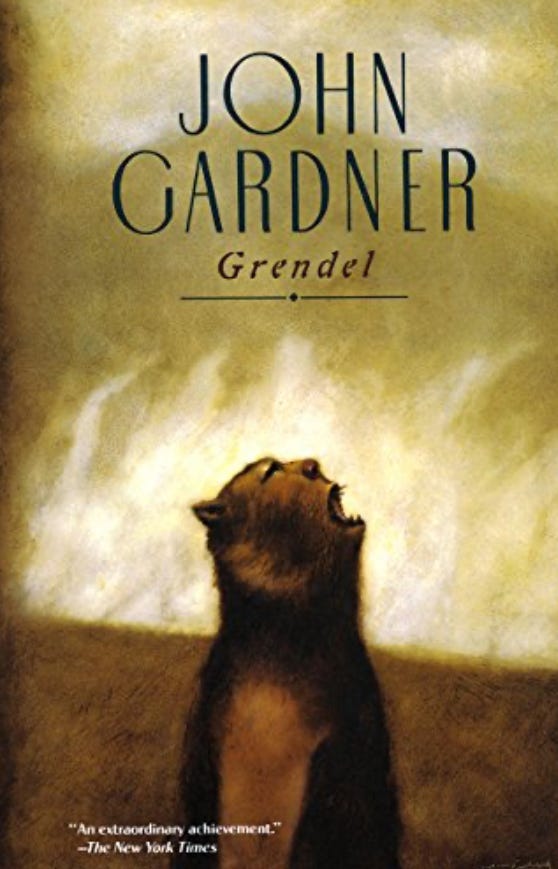Something Matt Taibbi wrote the other day stuck with me for a while.
No man with a spine would go near the term “positive masculinity,” since it implies there’s something wrong with masculinity. A woman who agreed to bask in cheers of men calling her an example of “positive femininity” would rightly be viewed as pitiable if not an outright traitor to her sex by other women. While the spectacle of Walz fawned over by a gaggle of female columnists fantasizing about him being led in a choker cradling a pig and wearing a hardhat is hilarious, it mostly makes men cringe, or want to organize an Entebbe rescue. Are Democrats so scarred by Bill Clinton that they have to put tank traps around anything with testes?
It’s an interesting implication, that Tim Walz was chosen for his ‘masculine’ qualities- his military service, his football coaching, and his affinity for hunting- not so much for the reasons that at first seem obvious. Ostensibly, his role is to play the part of wholesome midwestern old white guy to Kamala Harris’ young and diverse main character. But he’s not really being allowed to do that. Instead, the women of the Democrat opinion sphere are busy deconstructing him, holding him up to subtle ridicule, debasing whatever masculine features he might have in a way that is viscerally off-putting to normal men. Read the whole piece for all the references; you’ll see what I mean.
Link to the article and video here. Raw Egg Nationalist has something interesting about the phenomenon as well.
The Taibbi piece is insightful but it begs a few big questions. Why, if the intent behind picking Walz is to balance the ticket and attract male voters, as seemed to be the case initially, are so many of the most vociferous of the newly-minted Kamala supporters so eager to debase him? If he was chosen for his masculinity, why emasculate him? With all of the rest of the baggage he brings, with all the controversy around his stolen valor, why kick out the pillars from under him? On the surface, as a matter of rational political calculation, it makes no sense.
The answer, I think, goes beyond anything Taibbi, an old-school liberal, would consider plausible. There are other realities at work here, deeper truths we all, to some degree, pretend aren’t there. Political questions, in the end, are theological ones. So are questions of justice, of right relations among ourselves, men and women, families and the state. It’s common even for NormieCons to pay lip service to this idea; we on the right often talk about integralism or re-enchantment- bringing the spiritual back into domains of life from which liberalism has excluded it.
But re-enchantment isn’t quite the right way to think about it. Nature abhors a vacuum. So does the supernatural. There are no empty spaces, not for long. Secularism is just that brief moment right after the trees get bulldozed. The world is not in need of re-enchantment exactly; it’s quite enchanted despite our unwillingness to open our eyes to it. It’s just that the enchantment, the spiritual quality permeating the material world we inhabit, not having been tended, is overgrown with weeds, tendrils that wrap around and suffocate the life from our garden. The wild things, the spirits of the desert places, have returned, but then, they were never really gone.
In thinking about the world I often return to this passage from Romans 1. I’ve mentioned it before.
18 The wrath of God is being revealed from heaven against all the godlessness and wickedness of people, who suppress the truth by their wickedness, 19 since what may be known about God is plain to them, because God has made it plain to them. 20 For since the creation of the world God’s invisible qualities—his eternal power and divine nature—have been clearly seen, being understood from what has been made, so that people are without excuse.
21 For although they knew God, they neither glorified him as God nor gave thanks to him, but their thinking became futile and their foolish hearts were darkened. 22 Although they claimed to be wise, they became fools 23 and exchanged the glory of the immortal God for images made to look like a mortal human being and birds and animals and reptiles.
24 Therefore God gave them over in the sinful desires of their hearts to sexual impurity for the degrading of their bodies with one another. 25 They exchanged the truth about God for a lie, and worshiped and served created things rather than the Creator—who is forever praised. Amen.
26 Because of this, God gave them over to shameful lusts. Even their women exchanged natural sexual relations for unnatural ones. 27 In the same way the men also abandoned natural relations with women and were inflamed with lust for one another. Men committed shameful acts with other men, and received in themselves the due penalty for their error.
28 Furthermore, just as they did not think it worthwhile to retain the knowledge of God, so God gave them over to a depraved mind, so that they do what ought not to be done. 29 They have become filled with every kind of wickedness, evil, greed and depravity. They are full of envy, murder, strife, deceit and malice. They are gossips, 30 slanderers, God-haters, insolent, arrogant and boastful; they invent ways of doing evil; they disobey their parents; 31 they have no understanding, no fidelity, no love, no mercy. 32 Although they know God’s righteous decree that those who do such things deserve death, they not only continue to do these very things but also approve of those who practice them.
First comes the rejection of primordial knowledge of God and its replacement by the worship of lesser things, things which seem more real because of a false proximity inspired by pride. That which is particular to us and to the world around us begins to feel more present than God, and men in their various nations begin to fall into the worship of created things like themselves. God, in His mercy, came to Earth as a man to call us to return to Him; He told us to love one another and we killed Him for it. He loves us still. And He gave us the means to transcend the temporal and material for the transcendent and eternal.
The second part of the sequence is especially interesting regarding our time. The Apostle outlines a disordered general relationship between men and women. Before it all culminates in murder and strife, there is a kind of pulling away between the sexes. He doesn’t mention men and women fighting as such so much as each party going its own way into depravity. Paul specifies that in doing so both men and women exchange what is natural for what is παρὰ φύσιν. This phrase quite literally means para-natural; it is usually translated as ‘unnatural,’ but an adventurous translator might go with ‘paranormal’ to give it the full scope of the sort of condition Paul intended to convey. There is an order to the universe, and in some fundamental way the coming together of men and women is a part of it. Their collective inability to reconcile is a harbinger of every other kind of evil.
That Walz’s masculinity is mocked by those who would vote for him despite it being the whole rationale for his candidacy is no mystery when one understands that the most significant force holding together that fragile coalition is resentment. They hate men like what he is supposed to be; they hate that they need him in the election to even have a chance to win, and they hate that the very normalcy of the social conditions that produced him still intrudes upon their consciousness despite their best efforts to rid themselves of it. It’s a particularly feminine resentment, even when expressed by men, a smoldering rage against a world that forces them to accept the plain fact that they can be physically dominated by people more powerful than them, and that this fact necessarily expresses itself in social realities that liberalism can disguise or hide, but never eliminate.
It reveals itself in projection; their opponents are said to hate women, to seek to control them, to hold them back, to hate their very joy. While there are certainly men who hate women- men whose abuse is ultimately rooted in a fearful inability to accept any loss of control, because their hatred of womanly agency is really just a terror of their own inner weakness- such men are not the motive force in liberal society or anywhere outside the bowels of the internet. Hateful men are looked upon with distain by society. Hateful, miserable women are an entire constituency.
Liberalism makes a fetish of equality, and none seek equality more intensely than those who feel themselves unequal. At its progressive leading edge, the phenomenon is readily observable. Look at this video put out by the Harris campaign and ask, as the anon did: does anyone lift? The men are, to a man, physically weak and softer than puppy crap while the women are a bizarre juxtaposition of plainness and overwrought and out-of-place sexualization.
It isn’t. Also, Hotties for Harris? If you say so . . .
And this is as normal as it gets on that end. The real energy among the progressives isn’t the college kids but the older women who have offered themselves wholly to the cause. They’re the ones who’ve dedicated their whole lives to it, forsaking the hope of any healthy family life or bonds of real love to pursue a path of self-gratification and the elimination of obstacles to the same. They’re the ones who’ve weaned themselves from dependency on anyone who might love them in favor of utter dependence on the state as the ultimate guarantor of their well-being, such as it is.
The resentment animating all of this is ultimately spiritual. Liberalism is less their politics than their faith. They serve the prince of this world; they are his brides before any other, and to him they offer as sacrifice whatever he demands. Michael DiBaggio offered this image on his recent post:
They’re dressed as abortion pills and chanting about not being forced to procreate.
Ann Coulter said it years ago- though I suppose she was hardly the first- abortion is the sacrament of the left. It is the religious ritual through which they bind themselves to their god. If you think to yourself, ‘but they say they have no god,’ that is precisely what I mean when I say the world never lost its enchantment. Just because you don’t see Moloch anymore doesn’t mean he’s gone. Driven from one place, he moves to another, until he finds a willing following once more.
He sometimes doesn’t have to travel far.
The demons that haunt our world are as cruel and absurd as they’ve ever been. The hatred of masculinity they inspire in is in truth a mere extension of a hatred for femininity. Pride circles back into self-loathing. The women who hate men the most are the ones most committed to aping them- a caricature of men at least- living with the lonely, callous distain and self-absorption they imagine of the opposite sex. Believing themselves modern, they instead have regressed to days of the Canaanites, throwing their children into the Tophet for the sake of material prosperity and an idea of freedom befitting a savage. They mock and abuse and pervert to their own ends, but if there’s a saving grace it’s that their selfishness most often means forsaking connections that enable the perpetuation of their particular degeneracy. Of course, some gravitate toward positions where they can influence others into following their path, particularly the young. And for some there are children of their own, a generation raised to seek vengeance against a society that would contest their will through the imposition of higher truth.
You’ve come a long way, baby.
I called this the Beowulf Election in my title, and having buried the lede long enough, I should perhaps elaborate. Leaders needing to face down a re-emergence of some ancient evil is a recurring theme in Western history as well as art. An example I think might be instructive.
There was once a great hall, Heorot, where the mead flowed and joyful songs were heard. It was a manly place, at once both a home and a third place, not hostile to women, but one in which the male spirit was allowed free rein. It was also a Christian space, the people of the land having recently been won over to the faith from their old ways. But the old ways still lingered outside the wooden walls. Sometimes, in their merriment, the things that dwelt in the darkness beyond could be forgotten.
The mead hall is the anti-longhouse. Heorot literally means ‘stag.’
But though prosperity could lead men to forget the monsters, the monsters would not forget them. Near the hall, in the bleak fens yet unconquered by the faith, lived a single mother and her son. They were of the line of eotinas, ettins, jötnar- monsters from ancient world, birthed from creation after its fall. But they also bore the mark of Cain, that first-fruit of family dysfunction who invented murder, of his own brother no less. The mother had no name, but her son, her fatherless brood, was Grendel.
Grendel hated the laughter and feasting of the men in the hall, men whose society he could not or would not seek to merit. The story never says that his mother inspired him necessarily. One imagines rather her influence seeping in, like so much swamp water, poisoning his soul. What other force was there in his life, after all? He crept into the hall at night and murdered the sleeping men. He devoured them. The dawn was greeted with mourning, and soon after men began to shun Heorot entirely. Hrothgar, lord of the hall, could only hope for deliverance.
If you want the story of Grendel from his perspective, and you want him to sound like Jean-Paul Sartre, and you want all your ideas about heroism deconstructed, well, I’d say read this book, but you probably prefer more recent Disney movies.
From across the water came his salvation, Beowulf of the Geats. Beowulf, in remembrance of a family tie, and for his glory and the glory of God, sought to rid Heorot of its curse. He forsook weapons- Grendel would not be beaten by any technology. Beowulf would put his whole trust in God and fight the monster hand-to-hand. He lay down in the hall with his followers, knowing that the creature Grendel could not abide the presence of one such as he among the living.
Grendel indeed came, rushing quickly into the hall, killing one man, drinking his blood, devouring his body, before turning to Beowulf, whom he thought was asleep as well. This proved his fatal mistake, as Beowulf grasped Grendel’s hand in his own in a grip the monster could not escape. His men tried to help him, but Grendel, like the berserkers of old, felt no pain from iron. Nevertheless, caught in the grasp of the hero, unable to squirm or bewitch or flee, he was helpless. Beowulf tore his arm from its socket and Grendel at last escaped, to flee into his bog and die. The arm became a trophy, the only physical evidence of the monster.
The story omits an exact description of Grendel. While the arm was huge and hard and scaly, Grendel is otherwise depicted as a shadowy figure with but the hint of a man-shape. He was at once ethereal and impenetrable, a thing that escapes being touched by others by being both too devoid of substance and too armored to get through. He was a twisted son, a perversion of every masculine virtue, undone for his crimes by Godly authority. But the story was not over.
Grendel’s mother remained. She sought revenge for the death of her murderous son. She hated the men of the hall just as he did. She burst into the hall as he had, and like him, killed the men there. There are feminist takes on Grendel’s Mother, positing her as a kind of hero who would have been recognizable to the men of Hrothgar’s court as engaging in a blood feud on behalf of her son. Indeed, Kevin Kiernan in “Grendel’s Heroic Mother” points out that she holds court under the sea much as Hrothgar does, that she fights with weapons as Beowulf does, and that Beowulf arms himself to fight her rather than seeking to grapple unarmed as he did with her son.
But this is to miss the point about what makes her makes her truly monstrous. The very traits that mark her as a warrior also serve to indicate her appropriation and perversion of manhood. She is a thing of evil lineage bearing only the superficial form of a woman, much as her son only approximated a man. She plays at being a king; her retainers are not nobles but sea monsters, unnatural things that wreak havoc on humanity. Grendel, the mock-man, is killed in the hall of heroes by an unarmed warrior; his desecration of male space is punished by his being beaten like the inferior he truly is. Grendel’s mother is killed in her own home, and in a sense Beowulf is invading her domestic space. He battles her in a woman’s domain, before her hearth, near where her dead son rests. His own newer blade having failed against her, he spies and takes up an ancient giant sword lying in her treasure heap. Reclaiming this masculine instrument from her possession, he beheads her, and then, for good measure, takes the head of Grendel’s corpse.
Beowulf purged a malignant force of corrupted masculinity from the male space of Heorot, and only then counter-invaded and destroyed a monstrous perversion of femininity, the vehicle through which an ancient, demonic evil perpetuated itself, in her own lair. He went on to become a king himself, facing down a dragon in a battle that proved mortal for both parties. In that final conflict he was able to imitate his Savior in surrendering his life in defeating evil, fulfilling the full promise of his earlier heroism.
I totally forgot they made this movie. Anthony Hopkins has been in everything.
No election, no democratic process, can serve as any kind of pure spiritual contest. There are those who vote for good people for bad reasons and bad people for good reasons; politics forces people into compromises. No party has a total claim to morality. But elections can serve to clarify and exemplify great spiritual questions. It is said that a great political divide exists between men and women, but this really only manifests particularly between those who affirm the reality of the differing and complementary natures of the two sexes and those who believe that ideology- and a dark sort of faith- can surmount and destroy them.
There is a faction in our society animated by a malign and destructive pseudo-femininity that seeks to render permanent as a matter of law and custom its revolution against God and nature. It has succeeded thus far because of a general failure of masculinity, brought on by an ethos of egalitarianism and material comfort that hides real problems the way opiates disguise pain. The most basic crisis we face as a people is our collective general alienation from one another as men and women. A healthy politics must address this. To affirm real manhood is the first step in rectifying a malignant social order, and to raise up dragon-slayers.












“That Walz’s masculinity is mocked by those who would vote for him despite it being the whole rationale for his candidacy is no mystery when one understands that the most significant force holding together that fragile coalition is resentment. “
💥💥💥💥
I have long been perplexed by those who say the world is disenchanted. It is a magical, divine world, mystical and amazing, whatever anyone thinks about it, particularly the depraved, decadent, dissolute and....Democrat.